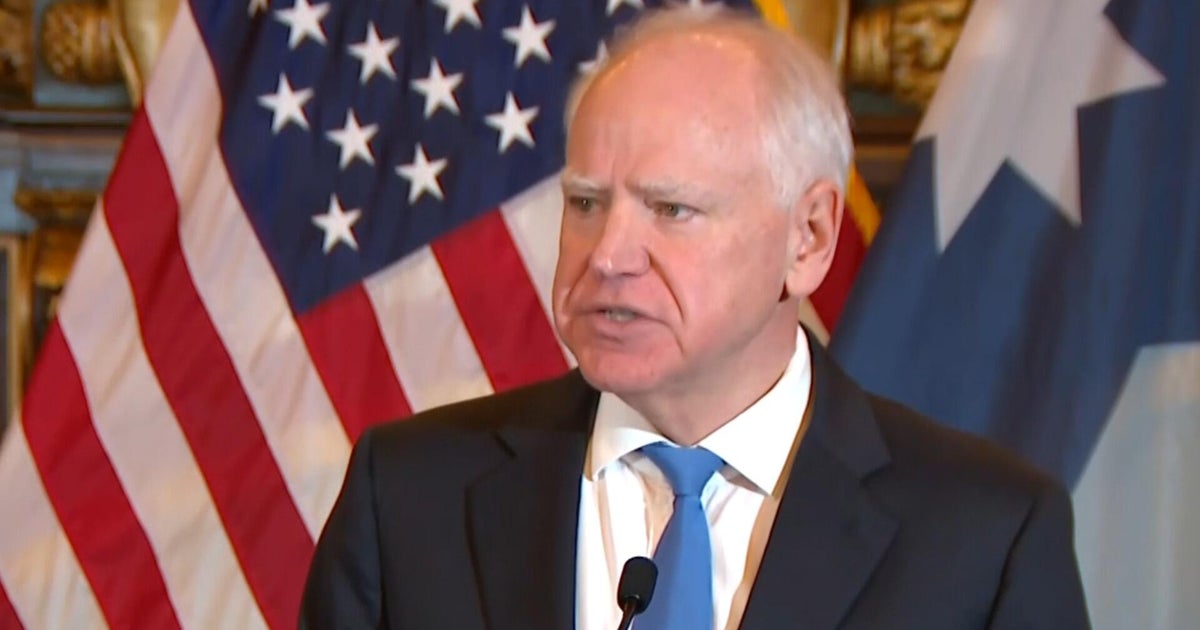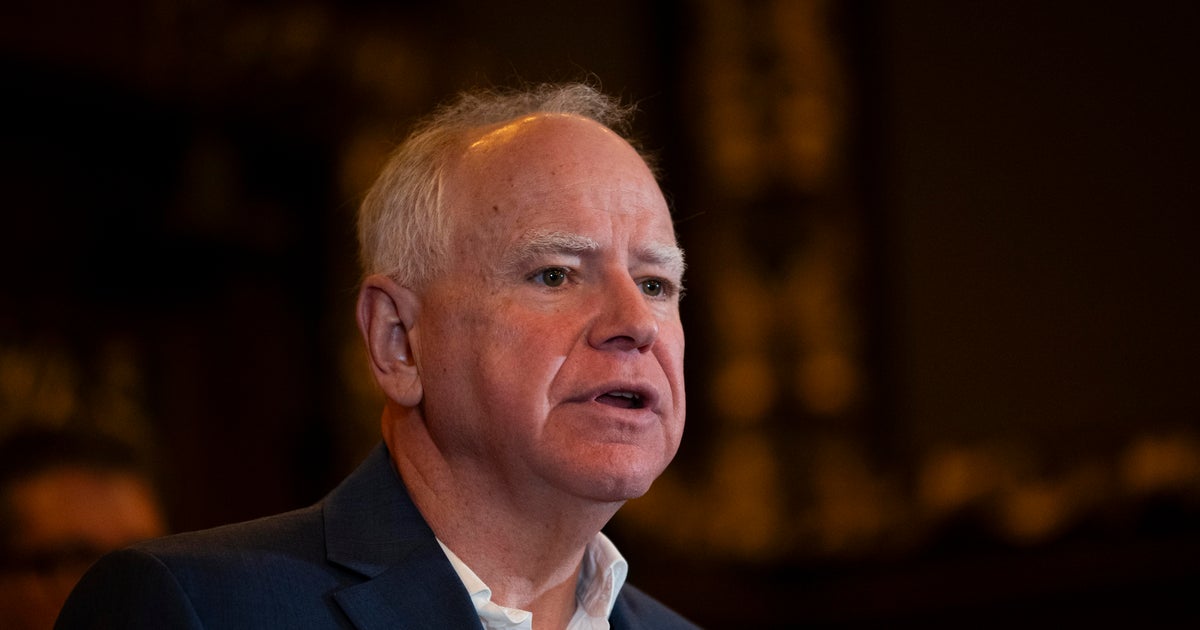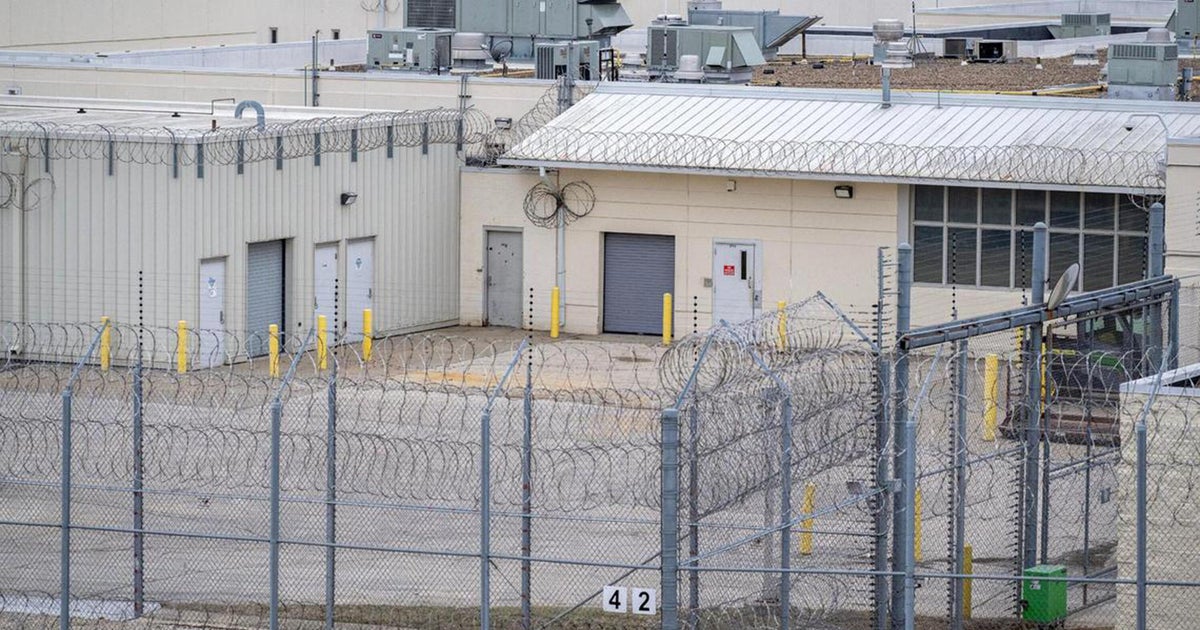Tim Walz's long history with China
Washington — Thirty-five years before Vice President Kamala Harris named Minnesota Gov. Tim Walz as her running mate, he was on his way to teach high school in mainland China after a bloody crackdown on pro-democracy protests in Tiananmen Square took place in 1989.
Walz said at a 2014 congressional hearing marking 25 years since the massacre that he entered China "as the events were unfolding."
He recalled meeting a crowd of people in a Hong Kong train station who were "very angry that we would still go after what had happened." But Walz, who became fascinated with China during his youth, saw it as an opportunity.
"It was my belief at that time that the diplomacy was going to happen on many levels, certainly people to people, and the opportunity to be in a Chinese high school at that critical time seemed to me to be really important," Walz said.
Facing scrutiny over his timeline about when he first traveled to China, Walz has now corrected the record, saying he misspoke and he didn't arrive in Hong Kong until August of 1989, months after the crackdown.
In 2007, as a newly elected congressman, he told The Hill that "China was coming, and that's the reason that I went."
His year teaching U.S. history, culture and English in Foshan, a city in the southeastern Chinese province of Guangdong, was the beginning of his decades-long relationship with China. It has opened him up to criticism from Republicans, who are trying to portray him as being weak on the communist-ruled nation, which is widely viewed as the greatest geopolitical threat and economic rival to the U.S.
Sen. Tom Cotton, an Arkansas Republican, said Walz owes Americans "an explanation about his unusual" relationship with China. Morgan Ortagus, who was a Trump-era State Department spokesperson, claimed that "if Walz has his way, our China policy will be the weakest in generations."
But Walz has spent his political career criticizing the Chinese government, especially its human rights record.
After Walz returned to Nebraska following his year teaching abroad, he told the Star-Herald that if Chinese citizens "had the proper leadership, there are no limits on what they could accomplish."
As of 2016, Walz said he had visited China about 30 times, including for his honeymoon. Walz married his wife, Gwen, a fellow teacher, on June 4, 1994 — the fifth anniversary of China's brutal repression of Tiananmen Square protests.
"He wanted to have a date he'll always remember," she told the Star-Herald before they wed. For their honeymoon, the couple led dozens of American students on a tour through China. The couple continued the educational trips for years through their own travel company.
Elected to Congress in 2006, Walz served on the bipartisan Congressional-Executive Commission on China, which focuses on human rights. He backed Hong Kong's pro-democracy protests, garnering praise from activist Jeffrey Ngo. In 2017, he was the only lawmaker to co-sponsor the Hong Kong Human Rights and Democracy Act, which eventually passed in 2019.
Walz has met with the Dalai Lama, Tibet's exiled leader, and has been critical of China's aggression in the South China Sea.
In a 2016 interview, Walz said he didn't "fall into the category that China necessarily needs to be an adversarial relationship," and said there could be "many areas of cooperation" between the U.S. and China. But he also said the relationship depends on China playing "by the rules."
That same year, Walz said China's human rights record was "getting worse, not better." He suggested that separating China's human rights record from trade policies, which he previously supported, was a mistake.
"I think the idea was, with a free-market economy, we would see a more opening of the Chinese grip on social life and on human rights. That simply has not occurred," Walz said during a House hearing. "We cannot decouple economic growth from human rights growth, and, as a nation, we need to hold those ideas up."
After the vice presidential debate, Walz told CBS News he understands China "a hell of a lot better than Donald Trump."
"Xi Jinping is not someone you should look up to," he said.



